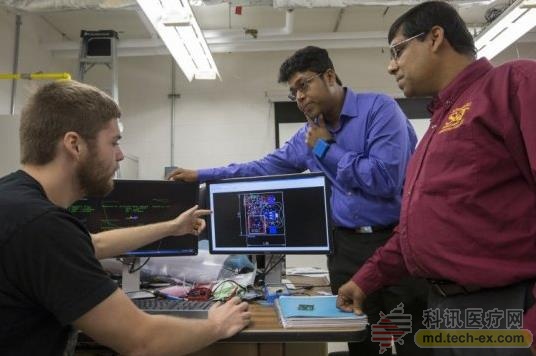Release date: 2016-09-06

A multinational, randomized study has shown that implanted neurostimulators significantly improve symptoms in patients with central sleep apnea without causing serious side effects.
Dr. William Abraham, co-author and director of the Department of Cardiovascular Medicine at the Wexner Medical Center at the Ohio State University, published the study at the European Heart Association in Rome. The study was published in the Lancet.
Unlike the more common obstructive sleep apnea caused by collapse of the airway portion, controlling respiratory failure during sleep can cause central sleep apnea (CSA).
"CSA is a serious problem because one third of its patients have heart failure, which is known to exacerbate the condition," Abraham said. “At the moment, we don’t have a good treatment. Positive pressure ventilation devices are not tolerated by many patients, and a recent study has shown that they are harmful.â€
Abraham, along with the first author, Dr. Maria Rosa Costanzo of the Advocat Heart Institute in Naperville, Italy, led the study in 31 hospitals in the United States, Germany and Poland. The team tested the safety and efficacy of Respicardia's transpulmonary stimulator like a pacemaker, which sends a regular signal to stimulate breathing during sleep.
In a randomized study, 151 patients were implanted with equipment. Ten were excluded due to non-study related medical issues, death, withdrawal of study, or lack of access. In the first six months of evaluation, 68 devices were activated for treatment and 73 were inactive as a control group. All patients underwent neurostimulation during the 6 to 12 month follow-up period.
In the six-month evaluation, the device reduced more than half of the CSA events, or 35 of the 68 patients (51%) had a reduction in CSA events. Only 8 (11%) in the control group achieved the same decline. Other important sleep indicators, such as hypoxic time, also improved significantly. Treatment-related discomfort reported for 3 patients in the treatment group was resolved by some reprogramming of the device.
“Not only did we see a reduction in hourly events, but patients also rated themselves well on the Epworth Sleepiness Scale (meaning they were less sleepy during the day) and performed well in a global quality of life assessment,†Abraham said. "This tells us that the effects of nerve stimulation are clinically relevant, which may provide a promising therapy for central sleep apnea."
Https://
Source: Noble
Antimicrobial Central Venous Catheter
Central Venous Catheter,CVC,central venous catheter set,central venous catheter double lumen,central venous catheter kit
Anesthesia Medical Co., Ltd. , https://www.sinoanesthesia.com